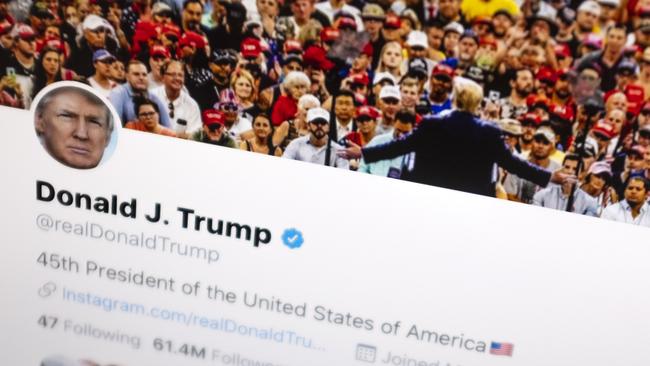Trump may be in firing line as Twitter moves on ‘abusive’ tweets
Donald Trump’s tweets may come with a warning as Twitter moves to label and obscure “abusive” posts.

Some of Donald Trump’s tweets may soon come with a label that tells users they are looking at “abusive” content, as Twitter tries to crack down on politicians breaking its guidelines.
The social networking site has said that it will now put a warning on any tweet from a politician with more than 100,000 followers that it considers to have violated its behaviour rules.
Before users can view the offending tweet they will need to click on a label that says: “The Twitter rules about abusive behaviour apply to this tweet. However, Twitter has determined it may be in the public’s interest for the tweet to remain available.”
The new rules are likely to affect the US president, who regularly posts tweets that appear to break Twitter’s guidelines to his 61.4 million followers.
Mr Trump could be accused of glorifying violence by tweeting a video of him punching a man with a CNN logo superimposed on his face. He could be seen as engaging in “targeted abuse” of others, such as Hillary Clinton, and “hateful content”. He has also arguably “incited fear” about Muslims, both in the UK and US, and threatened nuclear war against North Korea over Twitter.
A spokesman for Twitter said: “In the past we’ve allowed certain tweets that violated our rules to remain on Twitter because they were in the public’s interest, but it wasn’t clear when and how we made those determinations. To fix that, we’re introducing a new notice that will provide additional clarity.”
The rule change comes as tech companies grapple with how to handle the mass of abusive, hateful and false information that floods their sites every day.
Facebook said yesterday that it was looking at changing the rules around “deepfake” videos as Mark Zuckerberg, its founder, admitted that a doctored clip of a US politician looking drunk should have been flagged as fake earlier.
Deepfakes are computer-generated videos that use sophisticated artificial intelligence to show people saying or doing something they did not really do.
Facebook was criticised in May after refusing to take down a video of Nancy Pelosi, the US House Speaker, that had been doctored to appear as if she were drunk and quickly went viral.
Mr Zuckerberg admitted that Facebook should have stopped the video from spreading so quickly but defended the decision not to take it down, in contrast to YouTube. The video has now been labelled as fake on Facebook.
The Times



To join the conversation, please log in. Don't have an account? Register
Join the conversation, you are commenting as Logout